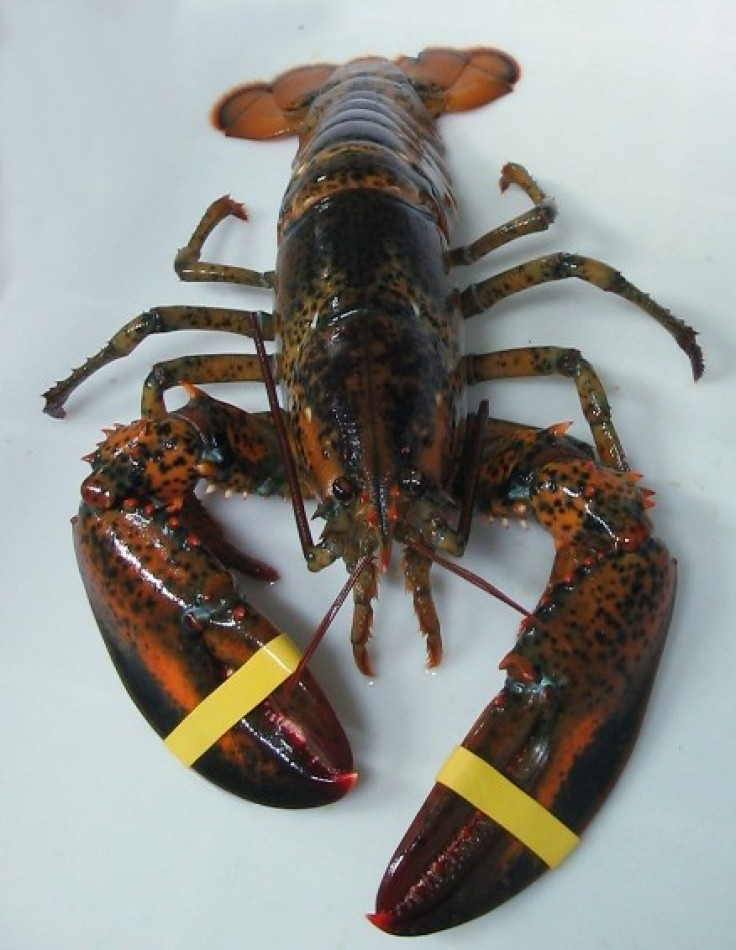A Side Of Conflict With Your Lobster? U.S., Canada In Crustacean Controversy

An unusually plentiful lobster season in Maine should be good news for fishermen and crustacean lovers. But in fact, it isn't. It has provoked protests and blockades in neighboring New Brunswick, Canada, where lobstermen are worried that cheap U.S. imports are threatening their livelihood because of low prices brought about by huge supply.
Now lawmakers on both sides are scurrying to find a solution to avoid a nasty lobster conflict between the two friendly nations.
Sen. Olympia Snowe, R-Maine, is getting involved. On Wednesday, she sent a letter to Secretary of State Hillary Clinton, asking for an investigation into the dispute.
Snowe is calling on Clinton to take up the issue with Canada's foreign minister and make it a priority within bilateral relations.
Last week, disgruntled Canadian lobstermen mounted protests and formed blockades at food processors in New Brunswick, forcing some of the plants to close shop. Tens of thousands of pounds of Maine lobsters were sent back to the United States damaged or even destroyed, Snowe lamented in her letter.
"This is an unacceptable situation that must be rectified immediately," Snowe wrote Clinton. "While I understand that the New Brunswick government is attempting to control these protests, it is clear that additional Canadian resources are necessary to maintain order and ensure continued commerce across the border.
"Any acts of intimidation, violence, or coercion cannot be tolerated and order must be maintained to ensure that our relationship with our Canadian partners does not undermine our long-term collaborative relationship on critical fisheries and maritime issues."
In the meantime, a New Brunswick judge granted a 10-day injunction preventing the Canadian lobster fishermen from blockading fish processing plants in protest.
The issue is felt deeply in Maine, where lobster harvesting is a major contributor to the economy.
The Maine Lobster Council's website stated that last year the catch exceeded 100 million pounds and brought in approximately $331 million. There are more than 4,500 lobster harvesters in Maine who are dependent on the fishery for a livelihood. The lobster business also supports others in processing, marine outfitters, boat makers, retailers and restaurants.
Hundreds of small, coastal villages and communities are supported by the fishing industry.
Maine's fishermen can be seen harvesting lobster year-round off its rugged coast. However, there are times when lobsters are easier to harvest. The majority of the crustaceans are caught between late June and late December, when they are most active. While the lobster harvest continues during the winter and early spring, fewer are caught during this time.
The problem is, fundamentally, that Mainers are finding too many lobsters. The prices they get for their catch, as a consequence, have dropped. How is that a problem for Canadians? It is because a lot of Maine lobsters, those that aren't sold fresh locally, are sent to New Brunswick, where there are far more seafood processing plants than in Maine.
But the local New Brunswick lobstermen have a problem with processors buying cheap Maine lobsters. So they want the provincial government to intervene, essentially with price subsidies. The government did in fact do something, but not enough. Canadian media reported that a deal was reached last week between New Brunswick Fisheries Minister Michael Olscamp and processing plants along with the Maritime Fishermen's Union. That deal required that New Brunswick lobstermen be paid at least $2.50 a pound for lobster.
However, the fishermen told the Canadian Broadcasting Corp. that they need at least double that amount if they are to maintain their crew and boats and keep up with the cost of living.
If authorities cannot find a solution to the problem soon, the lobstermen vow to continue blocking processors and, in essence, cut off the marketing system between Maine and the U.S. until the price dispute is resolved. (This affects American consumers too, because a lot of the lobster processed in Canada is exported back to America.)
As if this weren't enough, there's also the issue of soft-shell versus hard-shell lobsters. An unusual shift in the patterns of seasonal molting, when lobsters discard their hard shells in order to grow and then remain soft until a new shell hardens, means that this summer a lot of the Maine lobsters are the cheaper, less-prized soft-shell variety.
CBC video footage of a blockade in southeastern New Brunswick shows angry lobstermen tossing over a container of soft-shell Maine lobsters, arguing that it is no good.
"I am bending the shell and there's nothing to it," a fisherman can be heard telling the camera. "It's garbage. That's what it is. Garbage."
© Copyright IBTimes 2024. All rights reserved.












